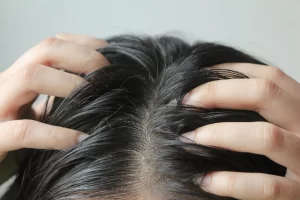
Menopause is a natural phase of life, but it can bring significant physical, emotional, and mental challenges. From hot flashes and sleep disturbances to mood swings and bone health concerns, this transition requires a proactive approach to maintain overall wellbeing.
The good news is that small, intentional lifestyle changes can make a big difference in how you feel during menopause. By focusing on proper nutrition, stress management, and supportive treatments, you can improve your energy levels, mood, and overall quality of life.
Making intentional dietary and lifestyle changes is one of the most effective ways to improve wellbeing during menopause. The right foods, exercise habits, and daily routines can help balance hormones, support bone health, and reduce common menopause symptoms.
Nutrition plays a key role in managing menopause symptoms. Incorporating these nutrient-rich foods into your diet can help:
Drinking plenty of water can help with dryness, digestion, and temperature regulation. Reducing caffeine and alcohol intake may also help prevent hot flashes and improve sleep quality.
Staying active supports cardiovascular health, reduces stress, and strengthens bones and muscles. The best exercises for menopause include:
Focusing on nutrition and movement can ease menopause symptoms and help you feel more energized.

Menopause isn’t just a physical transition—it also affects mood, memory, and emotional wellbeing. Hormonal fluctuations can contribute to anxiety, brain fog, and disrupted sleep, making stress management essential to improve wellbeing during menopause.
Engaging in relaxation practices can help regulate emotions and reduce menopause-related anxiety. Mindfulness meditation can help you stay present and manage mood swings. Deep breathing exercises can be used to lower stress levels and improve sleep. Journaling or creative activities help express emotions and process changes.
Sleep disturbances are common during menopause due to night sweats and hormonal shifts. To improve sleep quality, establish a consistent bedtime routine and limit screen time before bed. Keep your bedroom cool and dark to reduce night sweats. Try natural sleep aids like magnesium or chamomile tea.
Emotional support is crucial during this life stage. Strengthen your mental health by connecting with friends and loved ones to share experiences. Join menopause support groups for guidance and encouragement. Speak with a therapist or counselor to navigate emotional challenges.
In addition to lifestyle changes, both natural remedies and medical treatments can help improve wellbeing during menopause. Finding the right combination of support options can make this transition smoother and more manageable.
Many women turn to natural supplements to ease menopause symptoms. Some of the most effective options include:
Hormone replacement therapy (HRT) can be an effective solution for managing severe menopause symptoms. HRT helps balance estrogen and progesterone levels, reduce hot flashes, mood swings, and sleep disturbances, and support bone health and prevent osteoporosis.
Consulting with a healthcare provider ensures you get the right support. Regular checkups can help monitor bone density and heart health, hormone levels and vitamin deficiencies, and overall wellbeing to adjust treatments as needed.
Combining natural and medical approaches can help create a personalized menopause wellness plan.
Menopause is a natural transition, but it doesn’t have to be a struggle. By making mindful nutrition choices, managing stress, and exploring supportive treatments, you can improve wellbeing during menopause and maintain a vibrant, healthy lifestyle.
Key Takeaways:
Taking a holistic approach can make menopause a more manageable and empowering experience. If you’re interested in learning more about personalized hormone therapy or advanced wellness solutions, explore expert resources and consult a healthcare professional to find the best path for you.
Related Articles










* These statements have not been evaluated by the Food and Drug Administration. This product is not intended to diagnose, treat, cure or prevent any disease.